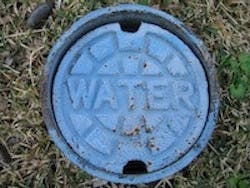Installed Base of Smart Water Meters to Surpass 153 Million by 2022
Traditionally a conservative business, the water utility industry is being forced into change by growing demand, aging infrastructure and tougher environmental targets. Smart water networks promise to help reduce non-revenue water losses, increase reliability and improve operational efficiency. Smart water meters are a key component of smart water networks, but other monitoring and control technologies are becoming increasingly important, as well, for leak detection, pressure management, and water quality monitoring. According to a recent report from Navigant Research, the installed base of advanced and smart water meters will reach more than 153 million worldwide by 2022.
“Providing an integrated view of all the elements of the water network, smart water networks will enable better management of water and energy resources while improving customer service,” said Eric Woods, research director with Navigant Research. “Yet, this transformation will take time, spanning decades rather than just a few years.”
Although water is becoming a focal point of many cities’ sustainability agendas, capital constraints present a major barrier to the modernization of existing water systems, according to the report. Replacing aging water infrastructure in established cities is expensive and disruptive, and building new reservoirs is even more challenging. Smart meters present a relatively low-cost opportunity to improve the performance and the economics of the overall water system.
The report, “Smart Water Networks”, examines the evolution of the smart water networks market, with a focus on drinking water systems. The report provides an analysis of the drivers and barriers for the transformation of the water industry, including technological, financial, environmental and economic factors. Global market forecasts of shipments and revenue related to components of smart water networks, including water meters, smart meters, water network monitoring and control, data management and analytics, and communications infrastructure, extend through 2022. The report also assesses the competitive landscape and various approaches to smart water networks in different world regions and provides case studies of major smart water projects.
Source: Navigant Research
